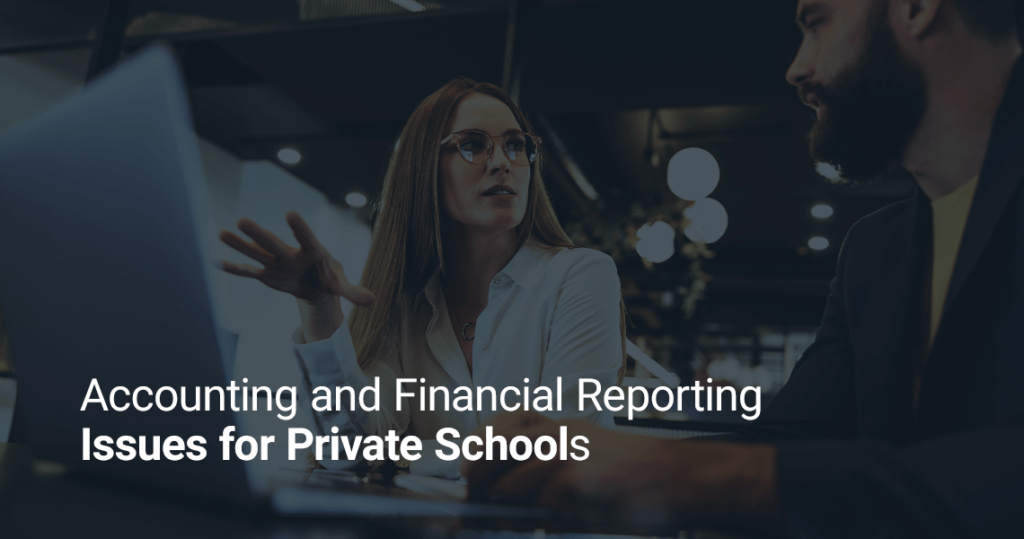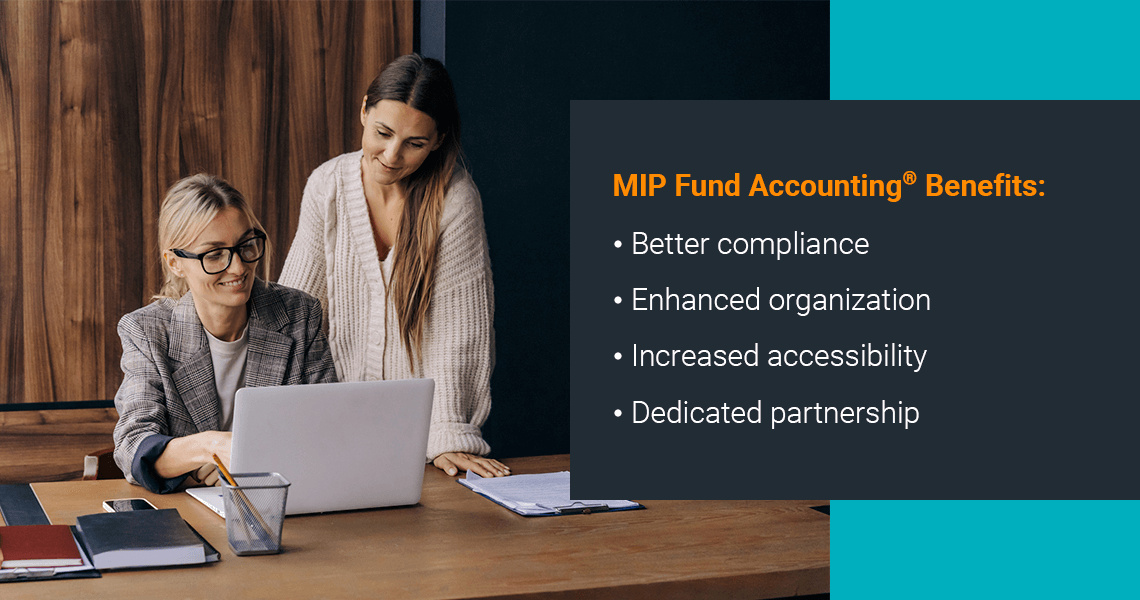Reading Time: 5 minutes
As nonprofits, private schools have a variety of responsibilities when it comes to financial reporting. Those responsibilities can make private schools’ accounting more complex than it is for other nonprofits.
The challenges of accounting for private schools stem from elements that resemble the financial structures of for-profits. To better manage your private school’s financial operations, you must be aware of the potential issues so that you know how to overcome them.
Assets
An organization calculates its net assets by subtracting its debts from its total assets. The complications that donor restrictions introduce can make managing net assets tricky for private schools. Private school accountability for reporting assets is an important area that requires your attention.
From an organizational standpoint, it helps to divide net assets by those with donor requirements and those without. Remember that nonrestricted donor contributions are considered board-designated net assets, meaning they can be used according to the discretion of the school’s board of directors. As you track your institution’s assets, take care to categorize them properly to avoid reporting errors.
Revenue
Private schools receive tuition along with donations. Together, they make up the majority of a private school’s revenue. Both categories have their challenges when it comes to financial reporting.
Tuition
Tuition payment undergoes wide review, making proper tuition payment management crucial. Note that the IRS considers tuition revenue to be a rated exchange transaction.
Some private school attendees pay tuition in advance, usually before the school year begins. Your organization should have a set of standards in place to manage these payments. It’s essential to budget your spending to ensure these advance tuition payments stretch throughout the school year.
Most private schools also offer a range of tuition financing options, all of which students can defer until a later date. As your organization processes deferred tuition payments, you should process them over the number of months in your school year, whether your institution is in session for nine months or year-round. Divide the total amount of deferred payments by that number when it’s time for processing and keep your process consistent to avoid errors.
When managing both advance and deferred tuition payments, organizations must design a budget that lets them maintain a predetermined minimum balance each month. This way, they can increase their chances of remaining cash flow positive throughout each school year. As students enroll in and leave the institution, private schools should adjust their budgets accordingly.
Donations
The rest of a private school’s revenue mainly comes from its donors. Donations are a significant driving force for private schools and can majorly expand an organization’s funds. However, financial contributions can come and go in unpredictable ways, meaning they can sometimes be challenging to manage.
Aside from endowments, which are their own financial reporting hurdle, donations can come in a variety of forms. Common examples include:
- Legacy giving: Donors give financial contributions after their deaths.
- Gifts in kind: Donors contribute goods or services rather than liquid cash.
A private school must record whenever they receive a donation, regardless of its size, in compliance with Generally Accepted Accounting Principles (GAAP).
Endowments
An endowment differs from a donation by its intention. Donations can take on various forms and come in different amounts. Endowments, on the other hand, are investment funds that organizations can access, whether for a set amount of time or in perpetuity.
There are two types of endowments — quasi endowments, which are managed by the organization’s board of directors, and true endowments, which come with a set of donor restrictions. The main distinction between quasi and true endowments is how their donors choose to designate them. Some donors will leave their endowments free of restrictions, leaving their use up to the organization. Other donors will impose certain limitations on their endowments, dictating how the organization may spend the fund.
The Uniform Prudent Management of Institutional Funds Act (UPMIFA) regulates all endowments. UPMIFA has standards for endowment spending according to donor intent. These guidelines vary slightly by state, so be sure to check that your private school’s endowment strategy aligns with your state’s preferences.
Occasionally, private schools may face issues when it comes to endowment spending. Following UPMIFA’s rules can be a challenge, as can managing how and when your private school chooses to dip into its endowments. Every private school’s endowment investment portfolio should be relatively varied and liquid to ensure you always meet the requirements of specific endowments while maintaining access to a portion of the funds.
How Private School Accounting Software Can Help
Properly recording and reporting your private school’s financial activity can make a world of difference. Rather than rely on outdated pen-and-paper methods or spreadsheets that save to your computer’s hard drive, you may want to consider making the switch to an accounting software program.
When you choose private school accounting software like the MIP Fund Accounting® system, you can enjoy the following benefits:
- Better compliance: Arguably the most notable advantage of accounting software is the ease of complying with regulations. To ensure you and your co-workers are meeting all applicable reporting and accounting standards, you should rely on accounting software that helps you automate and streamline your processes.
- Enhanced organization: Simply put, time spent digging through physical or digital files to access spreadsheets, tax documents, and other paperwork is time you could be better spending elsewhere. Accounting software lets your department put everything it needs in one location where they can view it on configurable dashboards. MIP®’s streamlined user experience makes for an easy-to-navigate platform that makes staying organized easier than ever.
- Increased accessibility: Accounting software like MIP® gives you access to cloud services, making it easy to access everything from anywhere. When your colleague’s external hard drive fails or you decide to work from home, your entire team can still access the documents and information they need on a single secure platform.
- Dedicated partnership: Recording and reporting can be a complicated process at private schools. With the team at MIP® by your side, you can rest assured that your day-to-day will become simpler. Beyond educating you and your team on our helpful accounting software, we’ll continue to provide you with resources to ensure you get the most out of it.
MIP®’s accounting system for private schools and other nonprofits is the best way to ensure your processes stay compliant, organized, accessible, and simplified.
Request a Demo Today
Are you ready to try the MIP Fund Accounting® software solution for your private school? Click here to request a demo. If you have questions, please reach out to us through our online contact form. The MIP® team looks forward to connecting with you!





